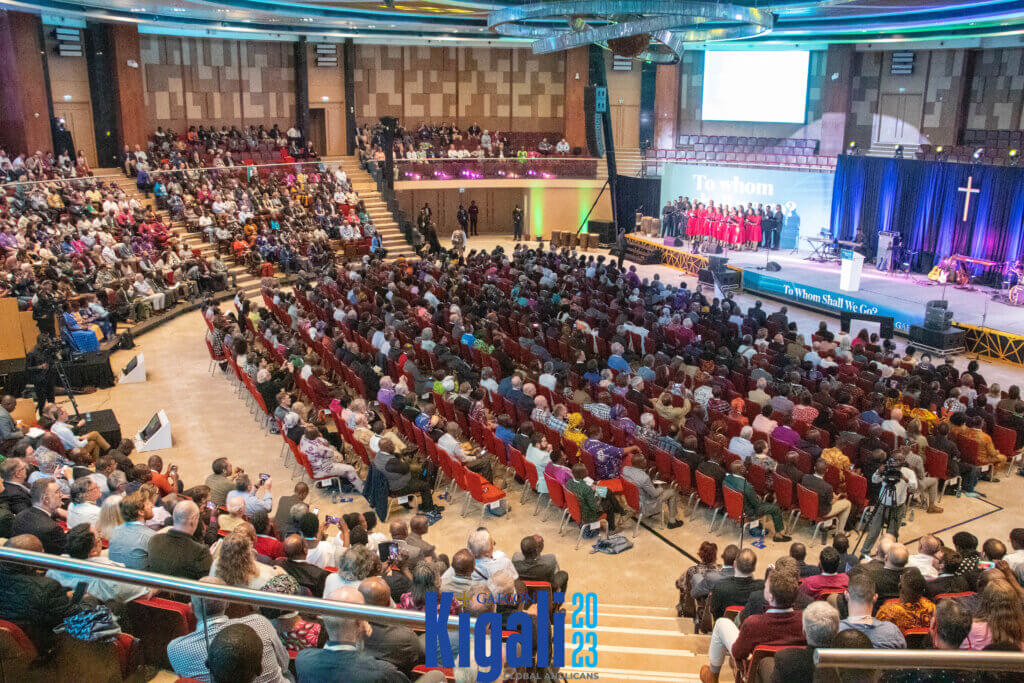Last week, I shared about the progress the Global South (GSFA) and GAFCON are making together in resetting and reordering the Anglican Communion on the basis of the biblical and apostolic faith “once delivered to the saints”(Jude 3). In that Stand Firm Podcast, I cited one archbishop who sits on both the Gafcon and the GSFA Primates Council who described this rapprochement as a “once deep ditch that has now narrowed and filled.”
The GAFCON primates concluded their meeting in London this past week with yet another sign of their active cooperation and partnership with the Global South in this important announcement:
“We have reactivated the Bishops Training Institute (BTI) under the guidance of Bishop Henry Orombi. While the BTI has been in abeyance since the onset of COVID-19, we pledged to work with the GSFA in the education and formation of those elected as bishops in the church of God.”
After leaving the Episcopal Church USA 2003-2009, I was among the many clergy, laity, and congregations who were warmly welcomed and received into the Church of Uganda by then Archbishop Henry Orombi. We praise God he will be helping to lead this joint effort in educating and forming new bishops in a reset, reordered, and covenanted Anglican Communion.
You can find the full text of the Gafcon Primates Statement from London here: https://drive.google.com/file/d/1qzda9ltnVXLlO-Fop4OcnndwrE5Q50Bj/view?usp=sharing
In last week’s Stand Firm podcast, I also addressed some old doctrinal divisions in historic Anglicanism that are now resurfacing between those who stand on the principle of Sola Scriptura (the belief that the Bible is our ultimate authority and interprets itself) and those who stand on the principle that Scripture must always be read and applied through the lens of The Great Tradition (reading the Bible at the foot of the Church Fathers and undivided Councils of the Church). David Virtue renders us a great service in giving voice to both sides in the article below, Anglican Theologians Clash Over Kigali Communique. It is a very lengthy article with much to digest, but it is an example of what “good disagreement” among biblically faithful Anglicans can and ought to look like in contrast to the Canterbury-TEC driven “good disagreement” that sacrifices biblical faithfulness on the altar of cultural compromise and unity at all costs.
As I read both sides of the argument, I find both sides seeking to honor the Bible, the inspired word of God, as the ultimate source of doctrine, authority, and an Anglican rule of faith and practice. This is the last and final principle of Anglican Conciliarism, the way Anglicans meet together to make decisions on all matter of things, and the heart of our polity (stay tuned for our upcoming 2024 release of Anglican Conciliarism!). This principle is also reflected in the Fundamental Declarations/Doctrinal Foundations of the Global South Fellowship of Anglicans Covenanted Communion (The Cairo Covenant 2019) at Section I paragraphs 4 and 5:
1.4 Sola Scriptura, sola gratia, sola fide. The Church is a creature of the divine Word, the self-communication of God who makes himself present as Saviour and establishes covenantal fellowship with humankind. The Church is constituted by grace alone to be a hearing Church, to be attentive to the Holy Scripture, God’s true word that sets forth his glory and human duty (The First Book of Homilies, Homily 1: ‘A Fruitful Exhortation to the Reading and Knowledge of the Holy Scripture’). The daily and sequential hearing and receiving of God’s holy Word in the Daily Offices, as The Book of Common Prayer stipulates, clearly testifies to this truth. The Anglican Communion is not simply a form of human culture or the outgrowth of natural human sociality. The Church is subject to the interrogative, interceptive and saving judgement of the Holy Scripture. It has its true form and visibility in so far as it receives by faith the grace of God through the life-giving presence of Word and Spirit.
1.5 Scriptura sacra locuta, res decisa est. Sacred Scripture has spoken, the matter is decided. The authority of the Holy Scripture within the Church is a function of the Scripture’s authority over the Church. The Scripture is to be translated, read, preached, taught and obeyed in its plain and canonical sense. The authority of the Scripture is its Spirit-bestowed capacity to quicken the Church to truthful speech and righteous action. We reject therefore the hermeneutical scepticism that commits the Church to a near-infinite deferral of decisions on matters of faith and morals. (Emphasis added)
As you read and reflect upon those who champion Sola Scriptura (Ashley Null) and those who champion the interpretation and application of God’s word in light of The Great Tradition (Gerry McDermott, Hans Boersma and Greg Peters),I encourage you to ask these questions. Are both positions compatible or incompatible? Are both positions at home with Sections I.4 and I.5 of the GSFA Cairo Covenant (above)? Or do they require any amendments or clarifications of these Fundamental Declarations?
Under the GSFA Cairo Covenant, such questions would need to be explored first through the Faith and Order Commission of the GSFA House of Bishops. This Commission will be launched at the June 11-15, 2024 meeting of the first Global GSFA Assembly in Egypt and not before then. In the meantime, can advocates of both positions address these theological differences in a robust way with accuracy, mutual respect, and, above all, charity?


